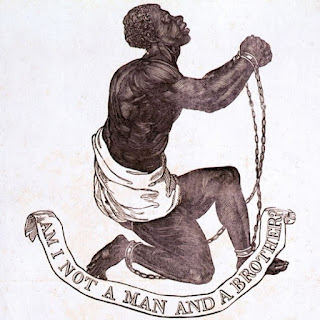More Gays and Trans People Are Killed in Haiti Than In Any Other Country
Moïse Manoël-Florisse is an African-Caribbean online journalist keeping an eye…
This article has been translated, updated, and edited from an article in the French-language website Stop Homophobie:
January 2024 was “the most violent month in over two years” in Haiti, with 806 civilians killed, injured, or kidnapped, and some 300 gang members also killed or injured, for a total of 1,108 people, according to the Office of the UN High Commissioner for Human Rights.
That violence followed last year’s total of 5,000 homicides and almost 2,500 kidnappings. But those figures undoubtedly are underestimates in this chaotic country of 11 and a half million inhabitants, now the most populous in the Caribbean, where no elections have been held since 2016. The former president, Jovenel Moïse, was executed at his home in July 2021, by Colombian mercenaries. The republic has been governed for three years by Prime Minister Ariel Henry without the slightest democratic legitimacy.
At present,, “there are undoubtedly more LGBT+ people murdered than anywhere else in the world, but as it’s a French-speaking state, very poor, devoid of strategic resources or explicitly LGBTphobic laws, nobody cares”, declares Diamantine (pseudonym), a Haitian activist who lived in Port-au-Prince until last summer.
The situation has continued to deteriorate with extraordinary brutality since former coup plotter and accused drug smuggler Guy Philippe re-entered the Haitian political game. Philippe served time in U.S federal prison from June 21, 2017, to November 30, 2023, when he was released and returned to Haiti. His goal is to seize power, “by force of arms if necessary”, according to Jean Ilaire Lundi Roday, the spokesman for Phillipe’s political group, the Front pour la Reconstruction Nationale. (Philippe himself denies that statement).
In the past, his squads of thugs were a sinister presence in Haiti, perpetrating numerous extra-legal abuses in the 2000s. According to Human Rights Watch, Philippe “reportedly has the support of members of the heavily armed Protected Areas Surveillance Brigade (B-SAP), a government security force, and has publicly called for a revolution, triggering protests and forced shutdowns in early and mid-January.”
Today, with 80% of the Haitian capital under the thumb of criminal organizations and a proposed Kenyan police peace-keeping force slow to materialize, local LGBT+ activists are distraught and can no longer imagine a future in their own country, while neighboring Dominican Republic has built a border wall to prevent immigration.
Meanwhile, the crisis is intensifying. Since January, some armed forces have been mutinying in the north of the country, notably the B-SAP, while the humanitarian toll is worsening, including among LGBT+ people seeking to relocate wherever their circles of inter-recognition allow, in a country that already has almost 170,000 displaced children according to the latest UNICEF report.
The English-speaking international press often highlights the new LGBTphobic legislative environments of former British colonies in Africa, such as Uganda or Ghana, as part of a confrontation of blocs between Western democracies, or even their allies, and illiberal regimes, of which Russia is the standard-bearer in terms of homophobia.
SEE ALSO
Haitian LGBT movement ignores women, lesbian activist says
Nevertheless, in Latin America and the Caribbean, which are predominantly Spanish- or French-speaking territories (with the notable exception of Brazil), although there are still small states with extremely homophobic legislation, such as Jamaica and Guyana, it is undoubtedly drug trafficking and the violence committed by the police and gangs that revolve around this economy that kills the most. LGBT+ people cannot escape this.
The recent outbreaks of violence in Ecuador, where drug barons are seeking to exert a stranglehold on the state, prove that, in addition to Haiti, no country in the region is immune to this type of development, which constitutes a significant regression in terms of rights and freedom, especially for vulnerable and minority groups such as LGBT+ people.
Indeed, in recent years, few investigations following murders against the LGBT+ community have come to fruition.
The result of these developments is a sort of de facto criminalization of homosexuality, where local LGBT+ organizations can no longer carry out their missions normally; activists find it increasingly difficult to meet, safe from stray bullets; and members of the LGBT+ community cannot gather safely in social and recreational spaces.
In Haiti, these are collateral effects of a war that does not speak its name — a destructive conflict that kills indiscriminately in a country that does not even manufacture firearms.


Comments